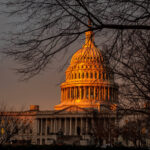
For those following certain parts of Twitter during the last week, it would have been easy to come away with the impression that Spotify was facing a mass exodus of artists protesting COVID-19 vaccine misinformation on Joe Rogan’s immensely popular podcast.
When Neil Young pulled his music from the Swedish streamer over its airing of “The Joe Rogan Experience,” he invited others to join him. Fellow Canadian rocker and polio survivor Joni Mitchell followed suit in solidarity (the friends share the same manager and record label). Few others did.
The exit of Young and Mitchell was enough to get Spotify Chief Executive Daniel Ek to release a lengthy statement on Spotify’s “critical role to play in supporting creator expression while balancing it with the safety of our users.” He didn’t mention Rogan by name.
The company agreed to publish its “platform rules” and add content advisories to episodes that discuss COVID-19, though it appeared to set a high bar for what it considers misinformation. It’s unclear whether Spotify’s response will be enough to quell the turmoil and relieve pressure on other artists to act.
But so far, the response to Young’s call has been largely muted among recording artists.
Sure, there was E Street Band guitarist Nils Lofgren, who said he was working with labels to strip Spotify of his music, and podcaster Brené Brown, who said she was pausing the release of new episodes. But the real chart-toppers who could truly shake things up — such as Taylor Swift and the Weeknd — haven’t gone anywhere.
Though Peter Frampton and David Crosby voiced support for Young, their albums remain available for Spotify’s millions of subscribers.
The reasons why more artists haven’t abandoned Spotify include a stew of political hesitancies, music ownership complications and business incentives. The issues speak to the trickiness of the debate over COVID-19 misinformation, free speech, music rights and the role of Spotify in the modern music industry.
Spotify is hugely important to the music industry
There’s a reason Billboard put Ek at No. 4 on its music business Power List for 2022. The Stockholm company counts 381 million users, including 172 million paying subscribers, in 184 countries, and in 2020 paid out $5 billion in music royalties, accounting for roughly 20% of recorded music revenues that year.
Cutting off that profit pipeline would be a big deal for artists and their labels. Young said leaving Spotify would cost him 60% of his streaming earnings.
Although artists these days make most of their money touring, royalty checks from Spotify are not easy to part with. Billboard estimated that Young and Mitchell are forsaking 10% of their annual earnings to bail on Spotify.
“Streaming income, while by no means the whole income picture, is the key income source now, and it’s driving the sky-high valuations that are allowing some artists to sell off and then sail off into the sunset with a yacht-load of cash,” said Bill Hochberg, a music industry lawyer in Los Angeles.
Spotify’s power extends beyond the balance sheet. The company, through its curated playlists such as RapCaviar, functions as the equivalent of a Tower Records in its heyday, combined with the biggest radio station conglomerates. Getting onto a popular Spotify playlist is a supercharged version of getting onto a record store end cap in the 1990s, exposing new artists to millions of listeners.
The company’s status as a promotional tool is as important as its function as a moneymaker through actual listening, and that helps touring bands develop the fan bases that buy concert tickets.
Music rights are complicated
Even when artists want to leave Spotify — and some do — it isn’t as simple as pressing the skip button. The top musicians typically don’t have direct relationships with streaming services; their music appears on the app through licensing deals with their labels and publishers.
The big labels — Universal Music, Sony Music and Warner Music — all have licensing deals with Spotify, as do the indies through music rights agency Merlin. Artists such as Mitchell have to go through their labels to get their tunes off the platform.
Many artists don’t even own their catalogs, creating additional difficulties. Top-tier songwriters such as Bob Dylan and Bruce Springsteen have sold their songs and recordings for nine-figure payouts. It’s unlikely the owners of those catalogs would want to forgo Spotify’s streaming revenue after forking over so much money in the hopes that streaming would make their investments pay off.
Indeed, Crosby, who vehemently agrees with Young’s position on Spotify and Rogan (the former bandmates have publicly clashed over the years), sold his recorded music and publishing rights to Irving Azoff’s Iconic Artists Group last year. That means his power is limited.
“They own my publishing and my revenue stream, so that means they are the ones making the decision and I can’t just call up and say, ‘Hey, I want to do what Neil did,’” Crosby told The Times on Monday. “I can’t do it. But I can call them up and say, ‘I wish you would do it.’ Which is what I’m going to do.
“They [Spotify] are consciously doing the wrong thing for money on purpose. That’s unforgivable.”
A representative of Spotify did not respond to a request for comment.
The alternatives aren’t exactly ideal
Artists who want to protest Spotify and Rogan, specifically, will find that some of the biggest competitors have their own flaws, other than not having the same reach.
After ditching Spotify, Young started promoting Amazon Music, owned by Amazon.com, which has faced criticism for allowing books with COVID-19 misinformation to be promoted through its e-commerce site (not to mention Amazon’s labor issues).
In a key distinction, though, Spotify effectively pays Rogan’s salary through its $100-million licensing deal, making it more of a media company than a retailer like Amazon.
Then there’s radio, which brings its own set of quirks. Artists may object to talk show hosts who promote misleading information about vaccines and spout conspiracy theories on the air that go unchecked. But they can’t pull their music from stations operated by, say, iHeartMedia.
Under U.S. copyright law, radio stations and non-interactive streamers (which are different from Spotify’s on-demand model) get their music through compulsory licenses.
The point of having blanket compulsory licenses is to streamline the process and avoid a bunch of negotiations that stem the free flow of music. But it also means that if artists don’t like a particular station, they can’t just take music off the airwaves.
Misinformation politics are tricky
Some artists may not necessarily agree with Young and Mitchell that pressuring Spotify to dump Rogan is the right thing to do, according to music industry insiders. Mass-market pop artists may not want to alienate fans by appearing to participate in a campaign to censor Rogan, whose podcast is Spotify’s most popular.
Ek’s statement and the disclosure of Spotify’s content moderation policies may not satisfy the most ardent critics, as they appear to set a relatively high bar for what would be considered unacceptable misinformation about the COVID-19 vaccines.
As former Billboard editorial director Bill Werde put it on Twitter, “Eh, it’s a start.”
Spotify said it won’t allow creators to claim that COVID-19 is a hoax or that the vaccines were “designed to cause death.” It won’t let hosts encourage listeners to drink bleach as a remedy or call for so-called COVID parties. But the misinformation that gets bandied about on Rogan’s show is typically more subtle than that.
Rogan himself, in a video posted on Instagram on Sunday, defended his decision to invite guests such as Robert Malone, a scientist and physician whose positions questioning the safety and efficacy of mRNA vaccines have been criticized by medical experts.
But he said he would try to do better and “balance” out controversial guests by bringing on experts more in line with the mainstream scientific consensus on vaccinations.
“There’s freedom of speech, and some have said that although they disagree with what’s said on Rogan’s podcast, it’s an overreaction to just cut the cord, especially if Spotify will add a disclaimer or warning,” Hochberg said.
If Spotify follows through with its commitment to add content advisories, that might be good enough for some artists.
This story is adapted from the Feb. 1, 2022, edition of the Wide Shot newsletter about the business of entertainment. Sign up here to get it in your inbox.
This story originally appeared in Los Angeles Times.




